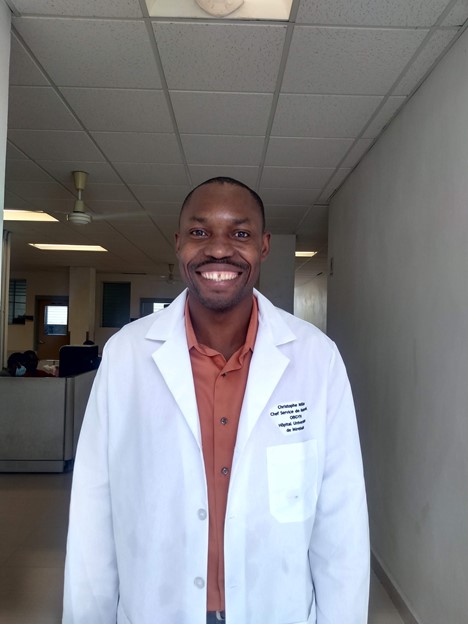 Christophe Millien MD, MMSc ‘20
Christophe Millien MD, MMSc ‘20
CMO of Mirebalais University
Mirebalais, Haiti
In the tenth year of the anniversary of the Master of Medical Sciences in Global Health Delivery program at Harvard Medical School, I'm delighted to reflect on this program as a former student of it. I want, at first glance, to think of Harvard Medical School for creating this master's degree and opening it to international students. I thank the school for establishing a scholarship for international students like me who can't afford the cost of studying at Harvard Medical School.
I greatly believe this program was created by Harvard to change the world, and I think it will do it in the future. I can witness how this program is essential.
First, the program provides a high quality of training in basic research by teaching students mixed method, qualitative, and quantitative research. This program's medical anthropology and ethnography class is a pillar of understanding social medicine. This research part is a critical component that is considered the program's backbone. It can help change health care delivery in the developed and the developing world based on evidence and effective program implementation for the community.
Second, selecting diverse candidates with various and massive amounts of experience worldwide makes the program more robust. This aspect is vital because these leaders trained in this program will eventually be in the highest position worldwide to revolutionize health care delivery. Health care delivery is highly associated with politics. Training people with the necessary skills and critical thinking to address these complex situations is fundamental in health care. I see this program can make substantial changes by creating extensive networking of high-skill and high-rank authorities worldwide. I imagine how pragmatic solidarity between these leaders could be a game-changer. Further, the sharing experiences between these students in class represents an essential gain for everyone.
Third, the ethics classes in global health and introduction to international health delivery teach basic principles of delivering care in low resource settings. We have learned how to maximize the outcome by using a few resources. The holistic approach that we learned from this program represents the backbone of healthcare delivery toward efficacy and efficiency. We also learned the principle of health care delivery is going beyond geographic borders. This program is building a comprehensive approach to care delivery worldwide.
Fourth, access to classes in other Harvard faculties is a critical element that provides students more opportunities to cover some gaps in terms of knowledge and reinforce their network for the future. For instance, in my case, the class on leadership, management, monitoring and evaluation, and learning from implanters were necessary for better global health practice.
In the end, I can say this program provides essential insights into how to write rigorously, do a literature review, conduct research, and apply practical sciences in health care delivery. I see this program as the top-rank program at Harvard soon. I encourage the university to keep and improve over time. The results are obvious.
Return to the MMSc-GHD 10th Anniversary page.
Return to the MMSc-GHD main page.
